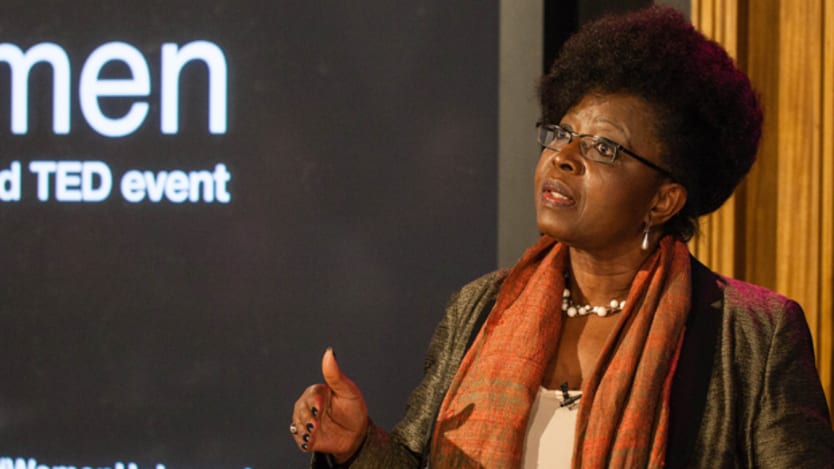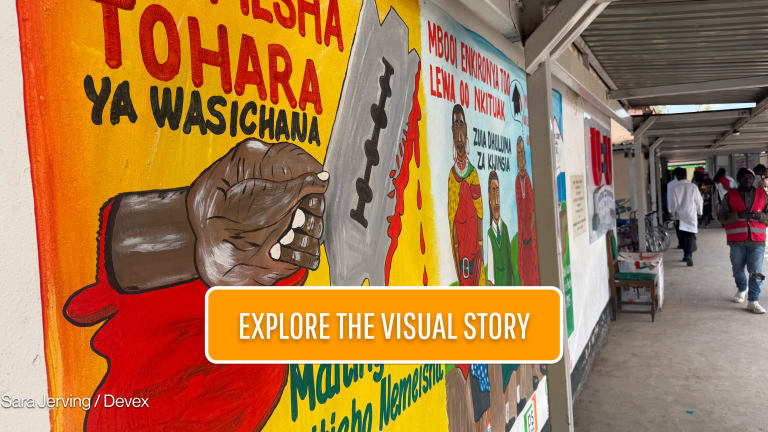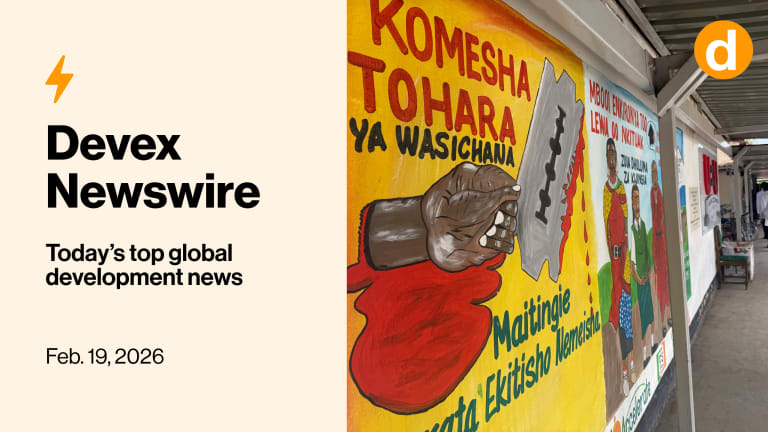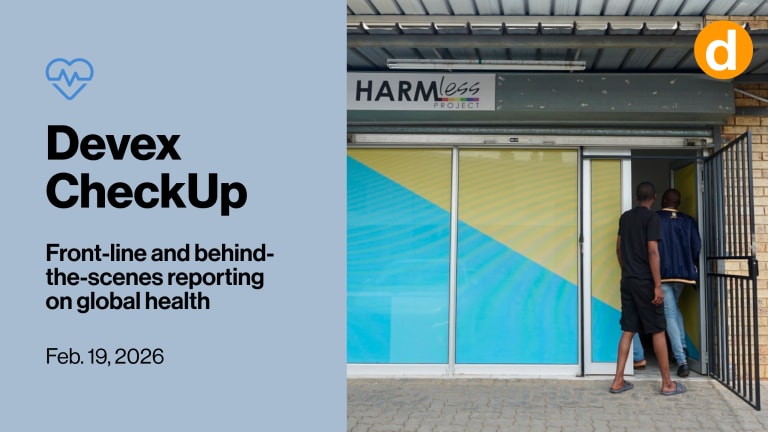'Nothing can stop' fight against female genital mutilation — advocacy group

More than 125 million girls and women have undergone female genital mutilation worldwide, and another 30 million are at risk of being cut over the next decade — yet few interventions have focused on stopping the practice, and previous United Nations targets and pledges to end FGM within a generation have failed.
“Unlike other campaigns of similar magnitude, FGM prevention has not received massive investments from the international community,” Efua Dorkenoo, program director at the End FGM Social Change Campaign, said in an exclusive interview with Devex.
At the grassroots level, though, she noted more and more people are engaging with the issue, particularly young women survivors of FGM — the so-called “warriors and heroines” of the campaign.
“A new generation of young African women and men are speaking [up] against FGM,” highlighted Dorkenoo, who has been fighting against the practice since the 1980s, in particular for its recognition as a human rights abuse and even “a form of sexual terrorism,” rather than a “cultural practice.”
The campaign launched this year is a new approach that will work to mobilize and support a network of grassroots activists across Africa to drive change at the community level, part of a broader program funded by the U.K. Department for International Development with £35 million ($58.2 million) — the largest investment to date in ending FGM by a bilateral donor.
Below are more highlights from our conversation with Dorkenoo:
You’ve been campaigning on this since the 1980s — where are we now? In what timeframe can we can see the end of FGM?
The tide is gradually shifting. Overall, the practice is declining in a number of African countries — although in other countries, the practice of FGM remains virtually unchanged. A new generation of young African women and men are speaking against FGM and the conversation is gradually shifting from harmful practices to rights, abuse and violence against women.
Unlike other campaigns of similar magnitude, prevention has not received massive investments from the international community — but I am confident that if governments and the international community put efforts into FGM prevention we can end it in a generation.
Have we passed a tipping point, or could the progress made so far be reversed?
We have not passed the tipping point, though we are close. FGM denies females their right to bodily integrity and their natural sexuality. The fight against this injustice has begun and nothing can stop it. In December 2012, African countries fielded a U.N. resolution banning FGM worldwide. This provides a critical window of opportunity to unite actors at global, regional, national and local levels to end FGM. At the same time, we are under no illusion. Once the campaign gains ground we should expect a backlash from some social and religious conservatives — and even among women themselves.
How significant is the recent FGM prosecution in the U.K. for the campaign?
[Up to] 40 countries around the world and 24 in Africa have legislation against FGM, except for a handful of countries — for example, France, Kenya and Burkina Faso — where laws are not enforced. The news that a doctor has been charged with performing FGM in the U.K. is monumental because we have had a law here against FGM for nearly 30 years, without a single prosecution. At last we have a strong judicial message that we hope will be a deterrent.
What is the role of women and girls in ending FGM? How can we encourage the next generation of advocates?
Survivor voices are central to the protection of the next generation of girls. They are our warriors and heroines of the campaign. Who dares to challenge and speak against them? Our generation put FGM on the map from the 1980s. We need to empower the next generation to take forward the baton. This is central to the work I do in developing a network of young women leaders for tomorrow. They see me as their second mother and I am privileged to be called "Ma" by them.
The new campaign you are leading is ambitious. How can it succeed where others have failed before?
The campaign is not starting from scratch, but supporting countries to build on the foundations already laid. And it is the catalytic component of a broader U.K. initiative to support African countries in their efforts. Options leads a consortium that includes Ogilvy-Africa, one of the largest African PR companies. This will be the first time that social change communication will be used on such a large scale to enhance campaigning efforts in at least 10 countries over the next 5 years.
The campaign is currently in the consulting and listening phase. What feedback are you getting?
The feedback we have had for the few countries we have visited so far — Kenya, Somalia, Senegal — is positive. Countries have welcomed the core principles to the campaign strategy: Africa-led and “do no harm.” One thing we have learned is that there can be no one-size-fits-all approach. In Kenya, for example, all the elements are already there: a law against FGM, a national task force in the making and a thriving civil society engagement. The country is ready for a national campaign against FGM. In Somalia, the challenge lies in addressing the mixed messages that forms of FGM — partial and total clitoridectomy — are acceptable, but only infibulation is wrong. In Senegal, the challenge is diversifying prevention efforts to include a wider base of civil society actors and strong government engagement.
Where do you expect to come across resistance and how does one counter that?
The key resistance comes from religious and social conservatives. The elephant in the room is the fact that among Muslim population groups that practice FGM, it is promoted as a religious obligation. Although FGM is not in the Koran, there are certain sayings interpreted by religious conservatives to support it. The lack of consensus among Muslim religious leaders on FGM undermines our work with Muslim population groups.
There are also some nationalists and social conservatives who support it as an African tradition, for tradition’s sake. They are educated people and may play on emotions and a lack of knowledge among the public to whip up African nationalism and promote political agendas in support of the practice. They are a small group, but they have a major influence.
How do we deal with them? Educating the public, providing protection and strengthening support systems — the foundation of this campaign. Ultimately, it is the law of the land that shall protect every girl child from undergoing FGM. Those who promote it should face the law.
Want to learn more? Check out She Builds and tweet us using #SheBuilds.
She Builds is a month-long conversation hosted by Devex in partnership with Chemonics, Creative Associates, JBS International as well as the Millennium Challenge Corp., United Nations Office for Project Services and the U.K. Department for International Development.
Search for articles
Most Read
- 1
- 2
- 3
- 4
- 5








